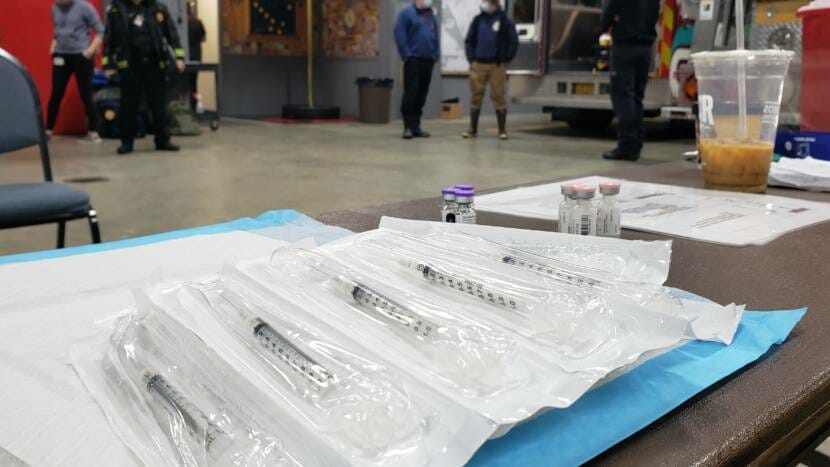
State health officials said some 26,800 doses of a second, new COVID-19 vaccine arrived in Alaska on Monday.
The Food and Drug Administration granted emergency use authorization to Moderna on Friday for this vaccine. People age 18 and up can get it. State health officials said it’s being distributed this week in Alaska.
The Moderna #vaccine arrived in Alaska today. The state is expected to receive 26,800 doses of Moderna along with 35,100 doses of Pfizer in the first shipment. https://t.co/wLUBl8oXdi
— Cheyenne Mathews (@CheyMathews) December 21, 2020
The Moderna vaccine has at least one big advantage over the Pfizer vaccine that started rolling out in Alaska last week: logistics. Pfizer’s must be held at extremely cold temperatures that regular freezers can’t reach to prevent spoiling. That happened last week to Ketchikan’s first vaccine shipment. After thawing, Pfizer’s vaccine can only be kept at refrigerator temperatures for a few days.
Moderna’s vaccine is stable at minus 4 degrees Fahrenheit and is OK in refrigerators for up to 30 days.
“The Moderna vaccine will help us reach more communities, especially those that have less access to cold storage,” said Tessa Walker Linderman in a press release. She is one of the heads of Alaska’s COVID-19 Vaccine Task Force. “Having both vaccines provides us more vaccine and more flexibility.”
Otherwise, the two vaccines share a lot of characteristics. Both require two doses. The second dose of Moderna’s vaccine is supposed to be given four weeks after the first. Pfizer and Moderna’s vaccines are not interchangeable.
Two more potential COVID-19 vaccines being developed by AstraZeneca and Janssen are in clinical trials.
In Moderna’s clinical trial, common reactions included fatigue, muscle pain or soreness, headache, chills and fever. Out of the 15,000 plus people who got the vaccine in the trial, no one had a severe allergic reaction, also known as an anaphylactic reaction. More details about Moderna’s vaccine and results from its clinical trial are available in this FDA briefing.
Anaphylaxis is a rare reaction to many common injections. It’s a life-threatening condition, but one that first responders and doctors can readily treat.
State health officials know of 11 possible allergic reactions to the Pfizer vaccine in Alaska: eight at Bartlett Regional Hospital in Juneau, two at Providence Alaska Medical Center in Anchorage and one at Fairbanks Memorial Hospital. Two were considered anaphylaxis.
The reactions were flagged during the observation period after injection. The state said all of the patients’ symptoms went away and they’re all OK.
State health officials said that at least 5,674 doses of the Pfizer vaccine have been administered in the state as of Sunday.
The supply of both vaccines is limited. Frontline hospital workers and long-term care facility residents and staff are at the front of the line, followed by EMS personnel and health care professionals more generally. A state committee of mostly health care professionals is fine tuning advice from the Centers for Disease Control and Prevention about who should be vaccinated when.
